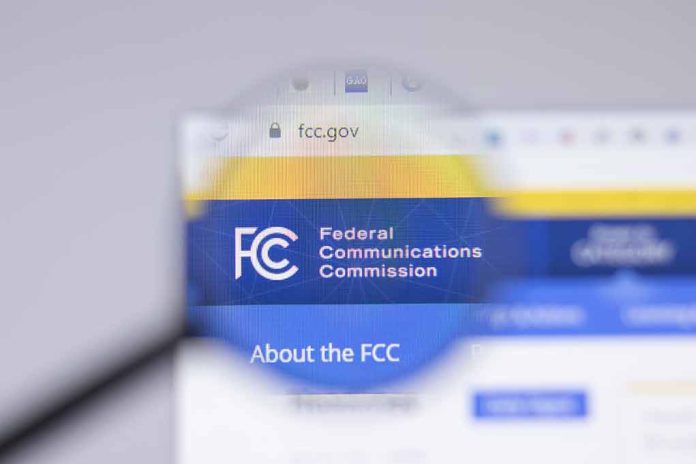
The Federal Communications Commission’s (FCC) recent move to greenlight Audacy’s reorganization plan, handing substantial control to George Soros, has ignited significant national security concerns.
At a Glance
- No official confirmation from the FCC about Audacy’s reorganization approval.
- Reports suggest FCC has enough votes for approval with a 3-2 party-line vote.
- Soros Fund Management to provide $415 million of Audacy’s debt, becoming the largest stakeholder.
- Critics label the plan a “Soros shortcut” and urge the FCC to reject it.
- The radio network, Audacy, will exceed the 25% foreign ownership cap for station licenses.
FCC’s Controversial Move
In an unprecedented decision, the FCC has allegedly approved the reorganization plan for Audacy, under which George Soros’s investment firm, Soros Fund Management, will acquire a substantial stake. Critics argue this maneuver, mere months before a presidential election, circumvents standard national security reviews and foreign investment limitations.
FCC Commissioner Brendan Carr expressed concerns about the political implications and potential foreign interference associated with allowing Soros to become the largest stakeholder in Audacy. Carr highlighted the risks posed by bypassing the national security review process, which typically takes six months to a year.
Legality and Concerns
The federal judge approved the reorganization plan in February, which includes maintaining Audacy’s operations and eliminating $1.6 billion in debt. Despite procedural accelerations, the plan could exceed the 25% foreign ownership cap for radio station licenses, further amplifying concerns.
“I am very pleased that Chairwoman Rosenworcel has come to her senses and abandoned her plan to have unaccountable bureaucrats rubber-stamp George Soros’s takeover of Audacy.”
Senator Ted Cruz and numerous conservative voices have pressured the FCC to require a full Commission vote on the waiver request, emphasizing the need to uphold statutory foreign ownership limits. The significant financial backing provided by Soros has raised alarms due to his known political affiliations and influence.
The latest information available up to September 24, 2024, indicates that the Federal Communications Commission (FCC) has fast-tracked the approval of George Soros' acquisition of over 200 radio stations across 40 major markets in the United States, just weeks before the…
— Clarence Terrell (@clarenceTerre) September 24, 2024
Implications for Conservative Media
Audacy, formerly Entercom, is the second-largest owner of radio stations in the U.S. with about 225 stations, some of which are in key battleground states like Pennsylvania. The reorganization could have profound implications for media diversity and the preservation of conservative viewpoints on the airwaves. Critics point out that allowing the Soros Fund to hold such a significant stake might undercut conservative media outlets.
With emerging trends in media consumption, particularly the rise of podcasts and alternative news platforms like BlazeTV, there remains a glimmer of hope for maintaining diverse media representations. This shift could help balance the concentrated influence expected from the Soros-backed reorganization of Audacy.







